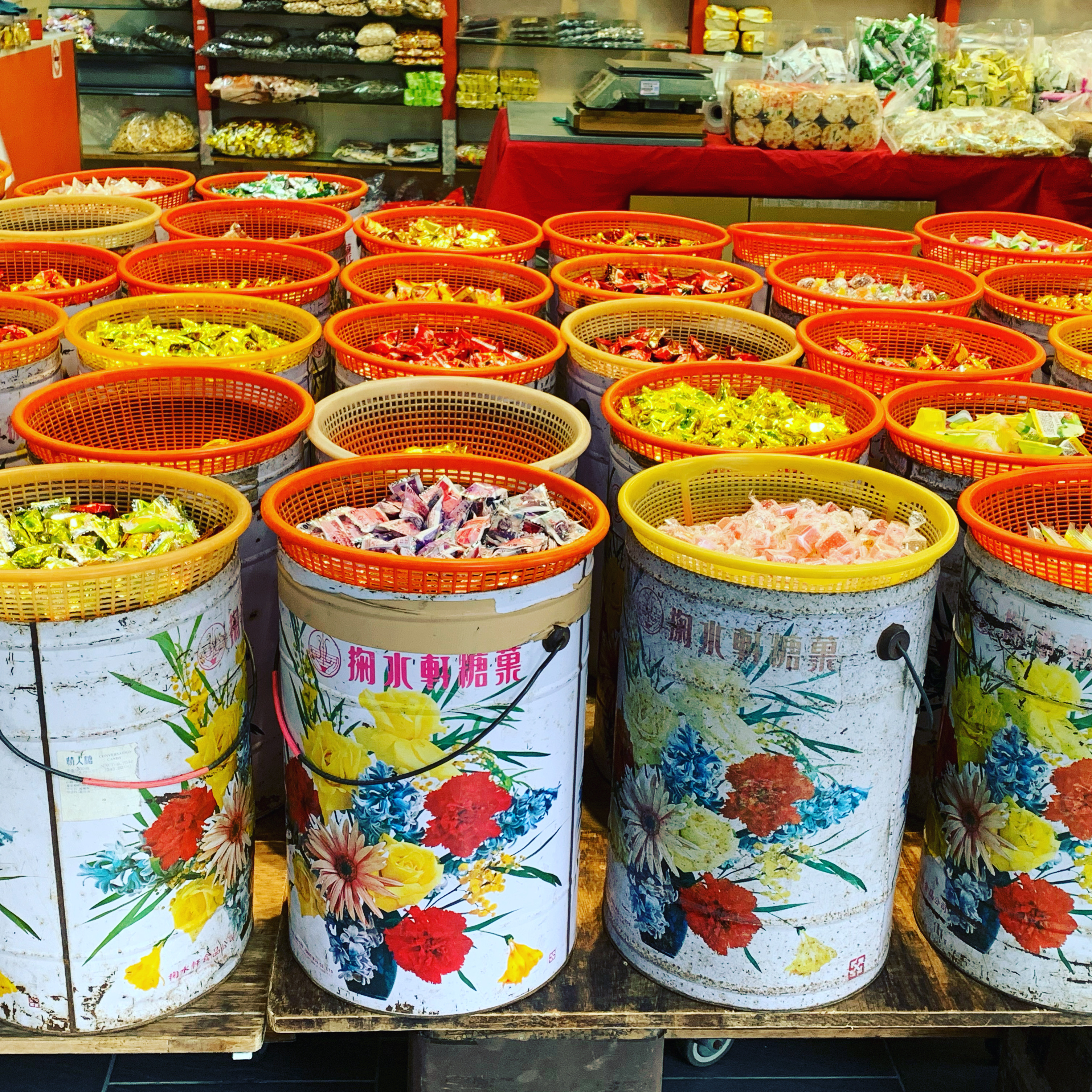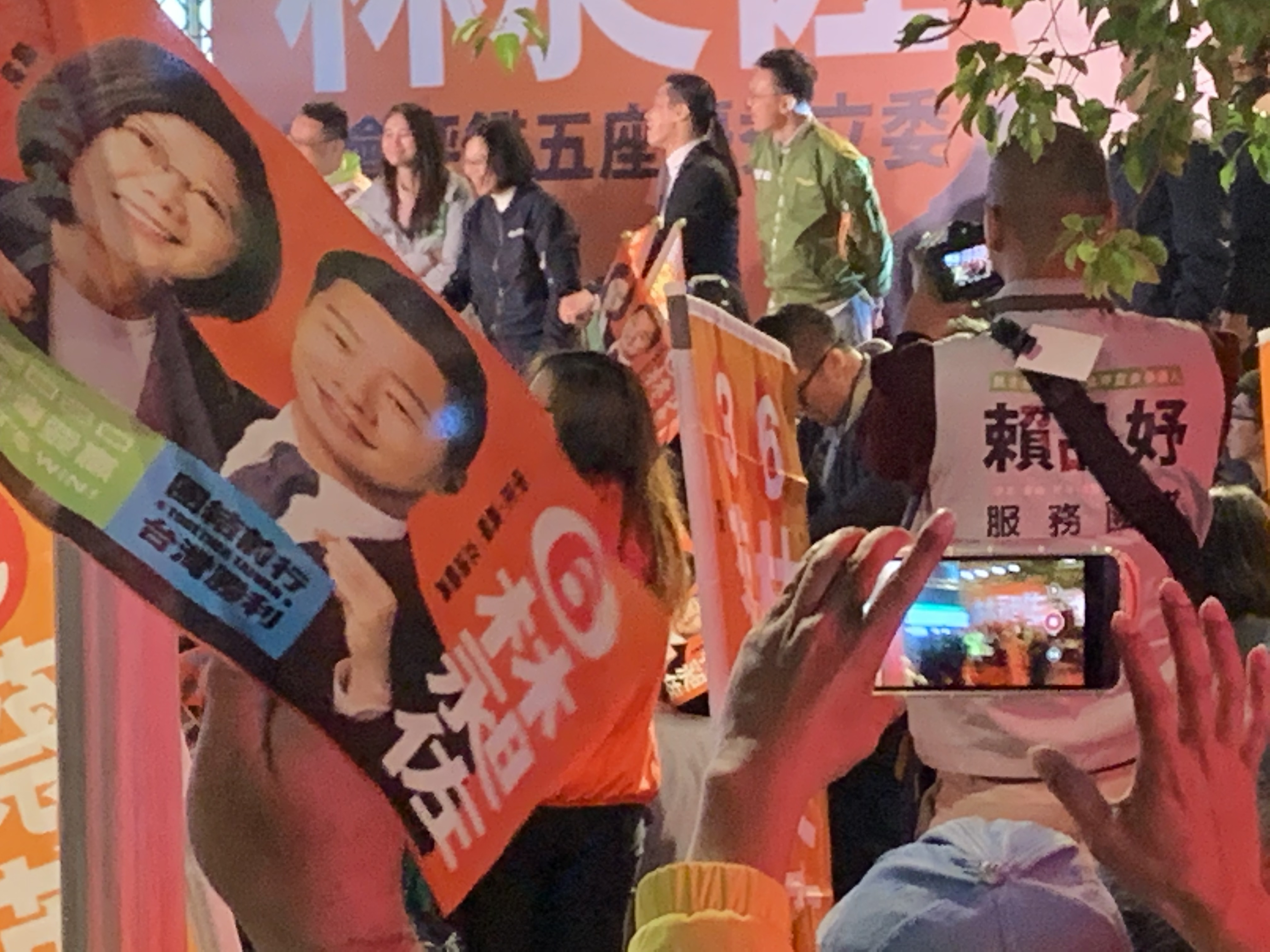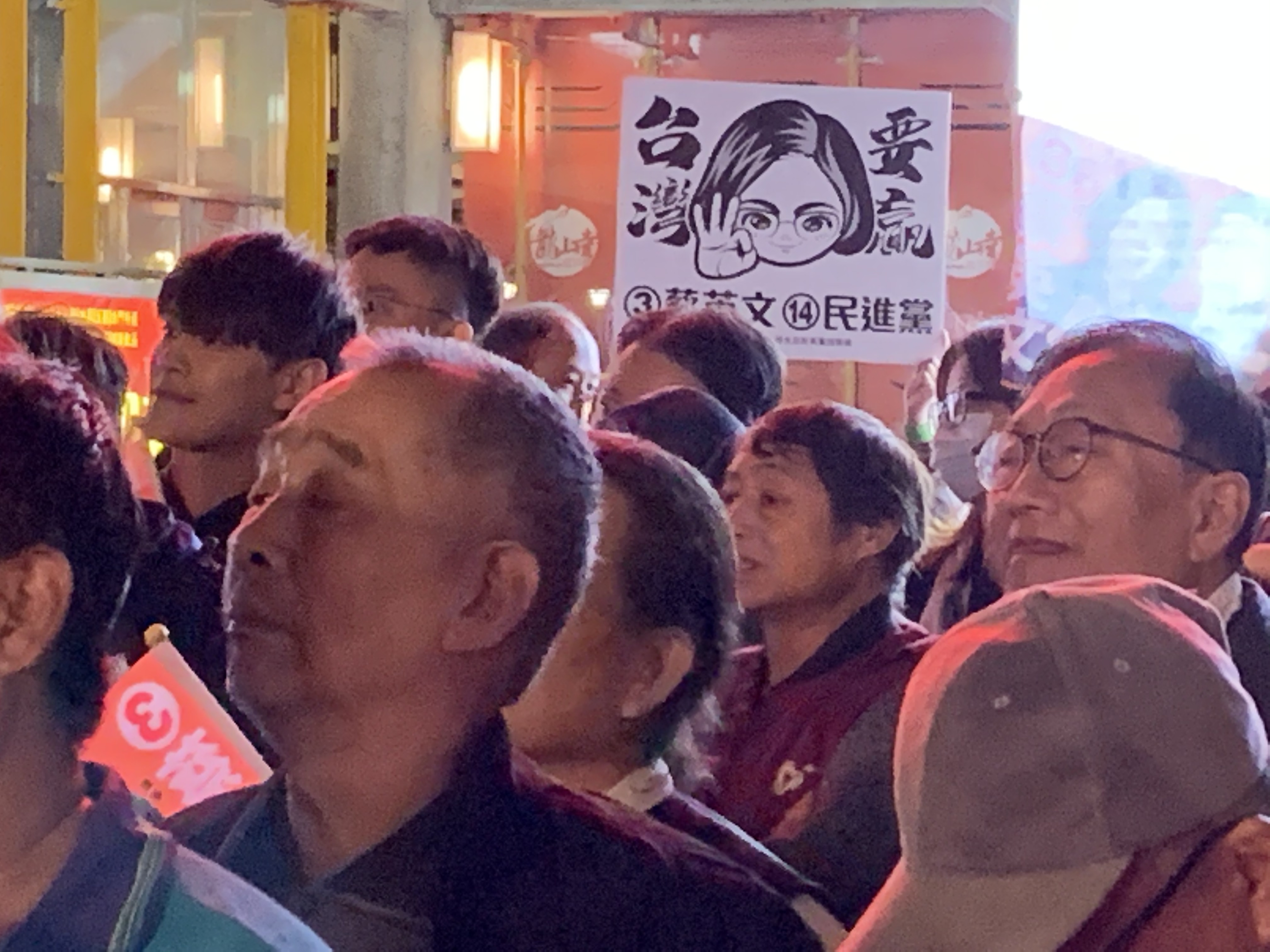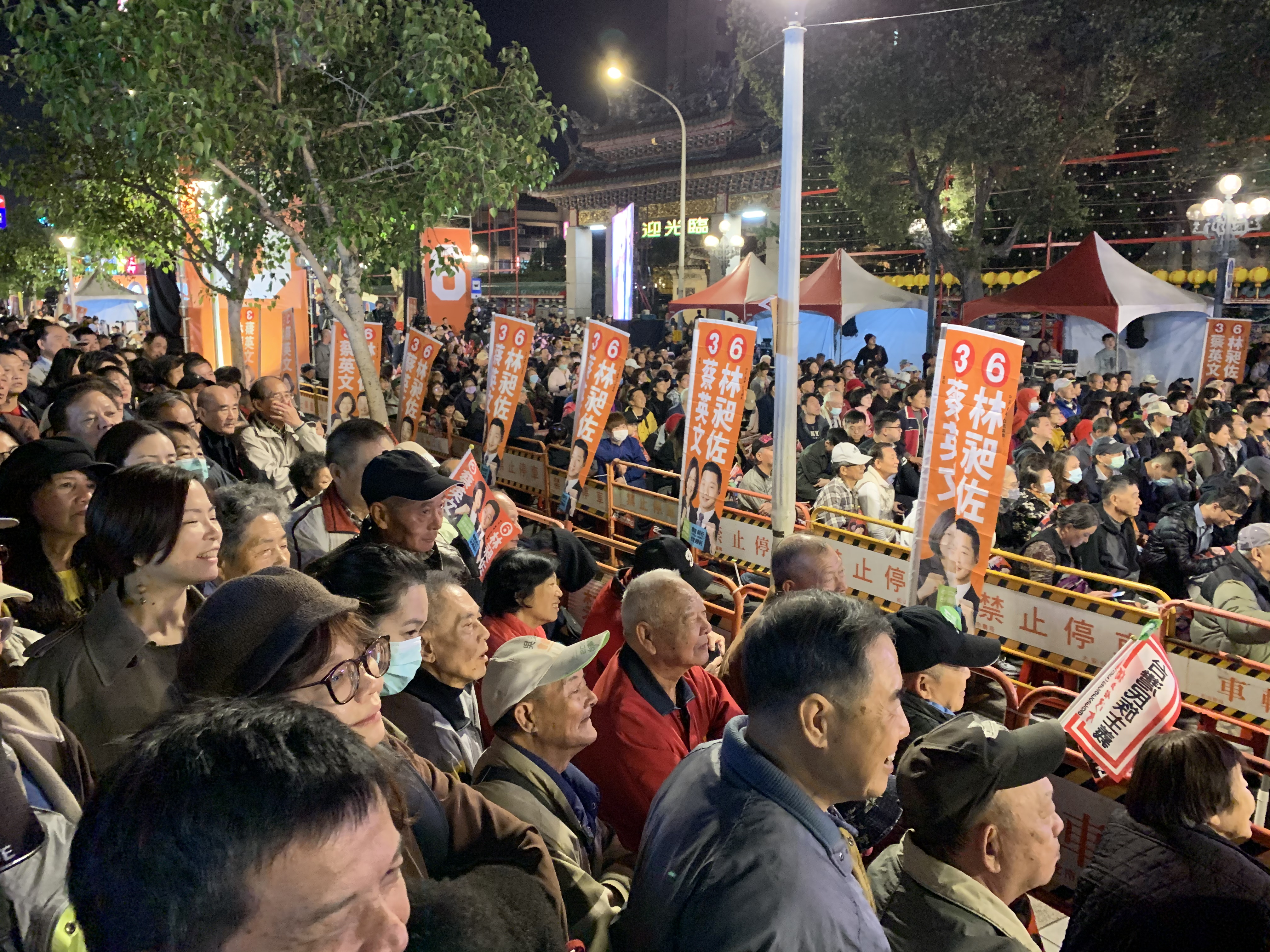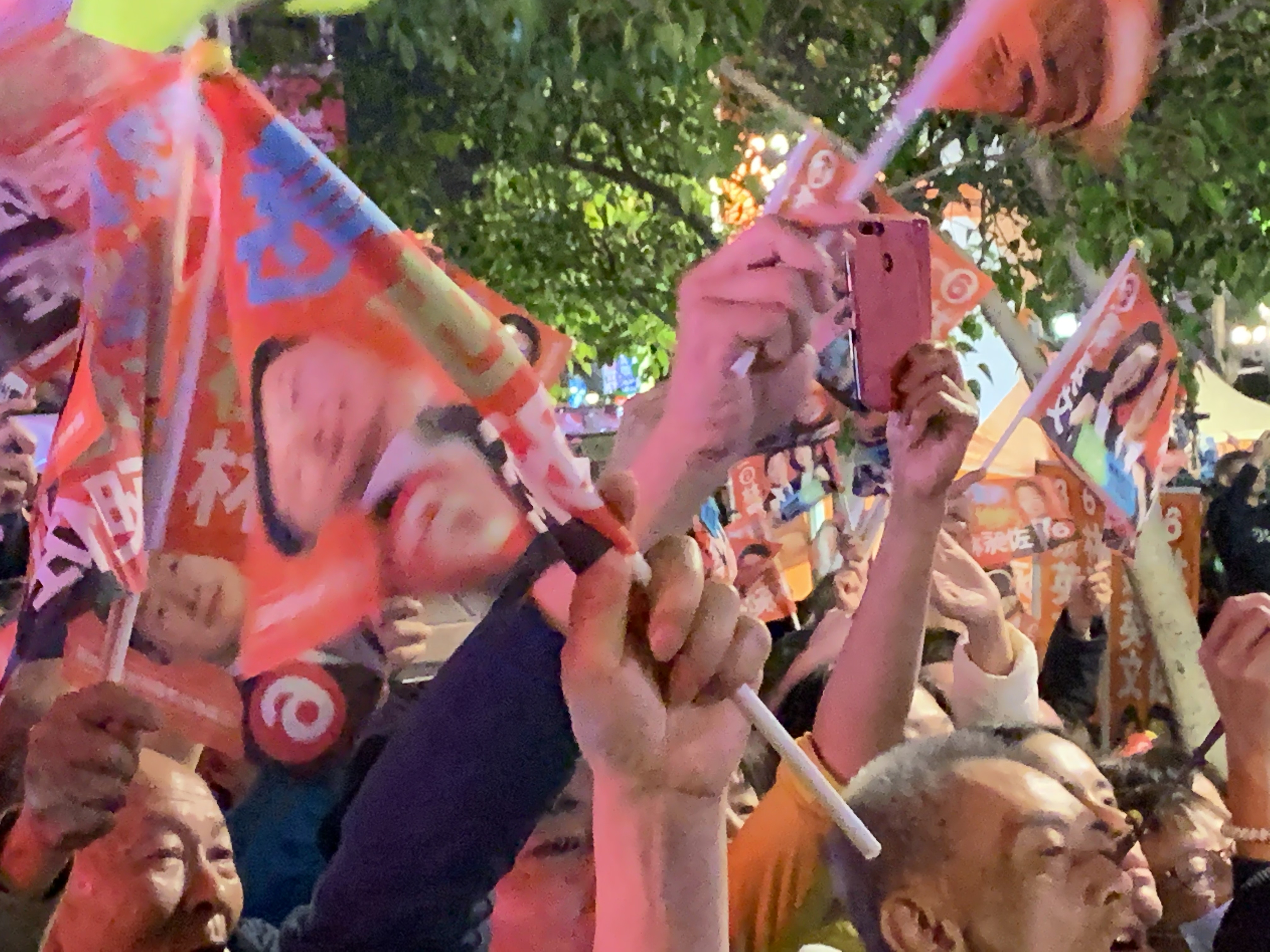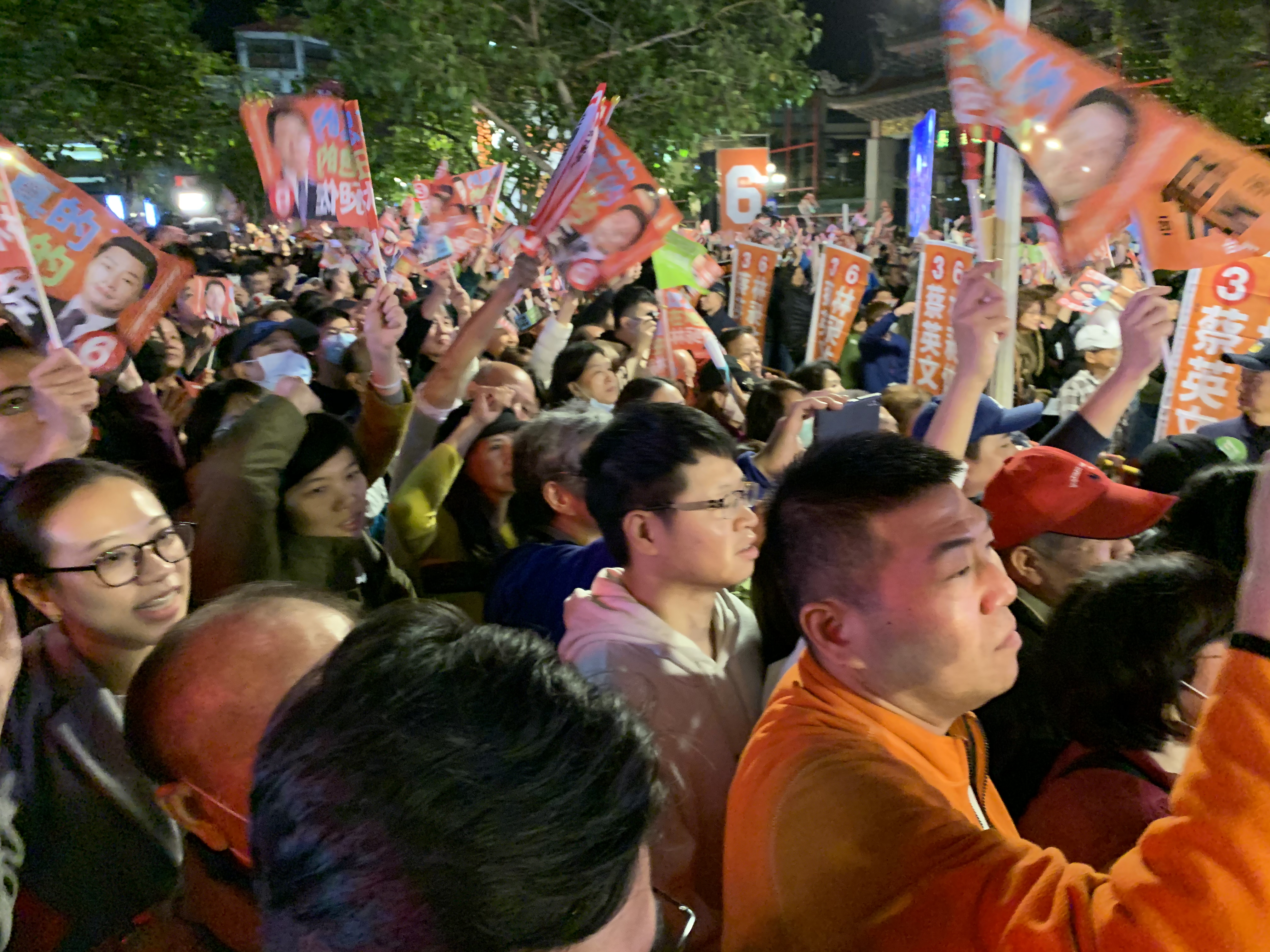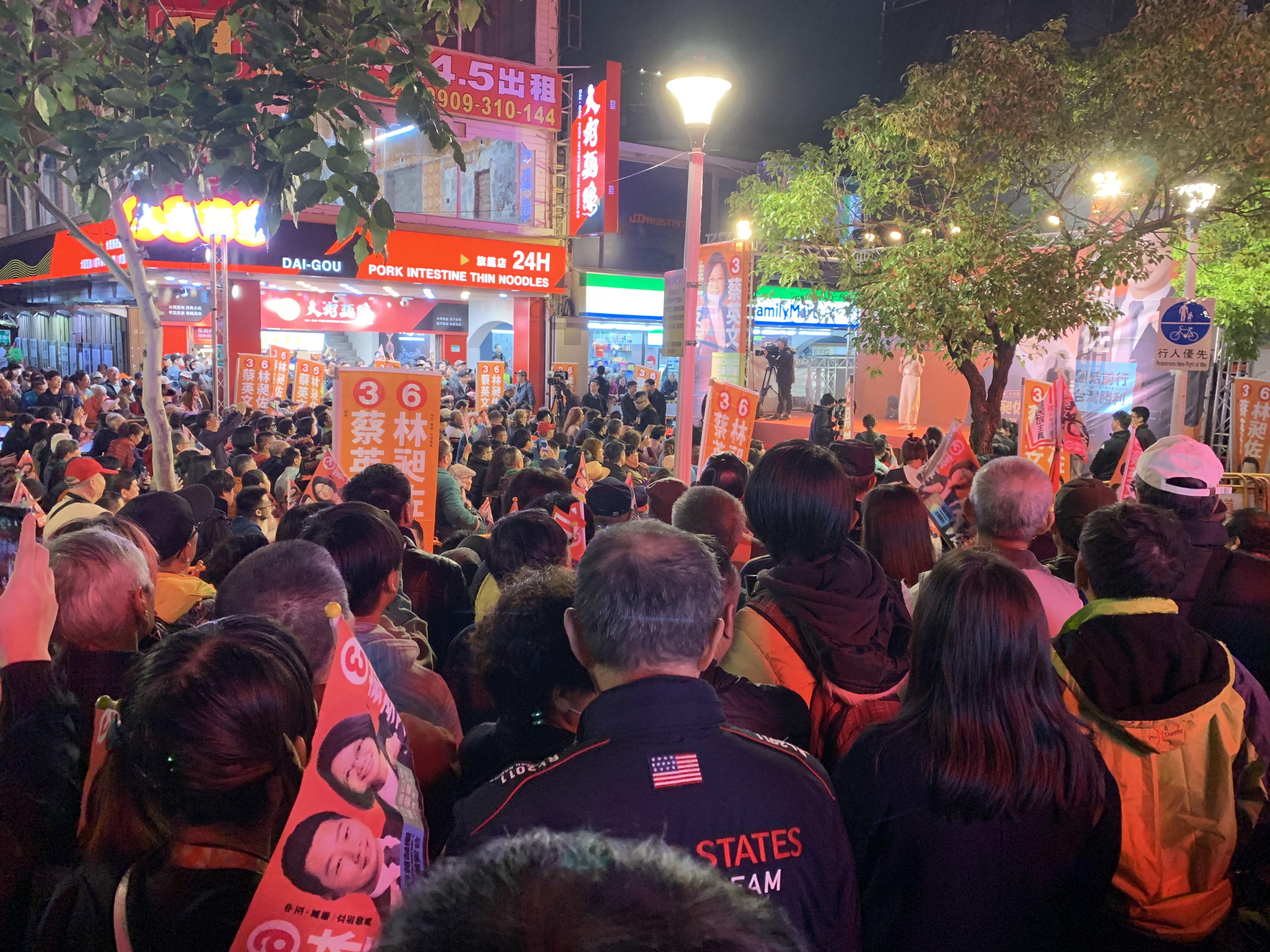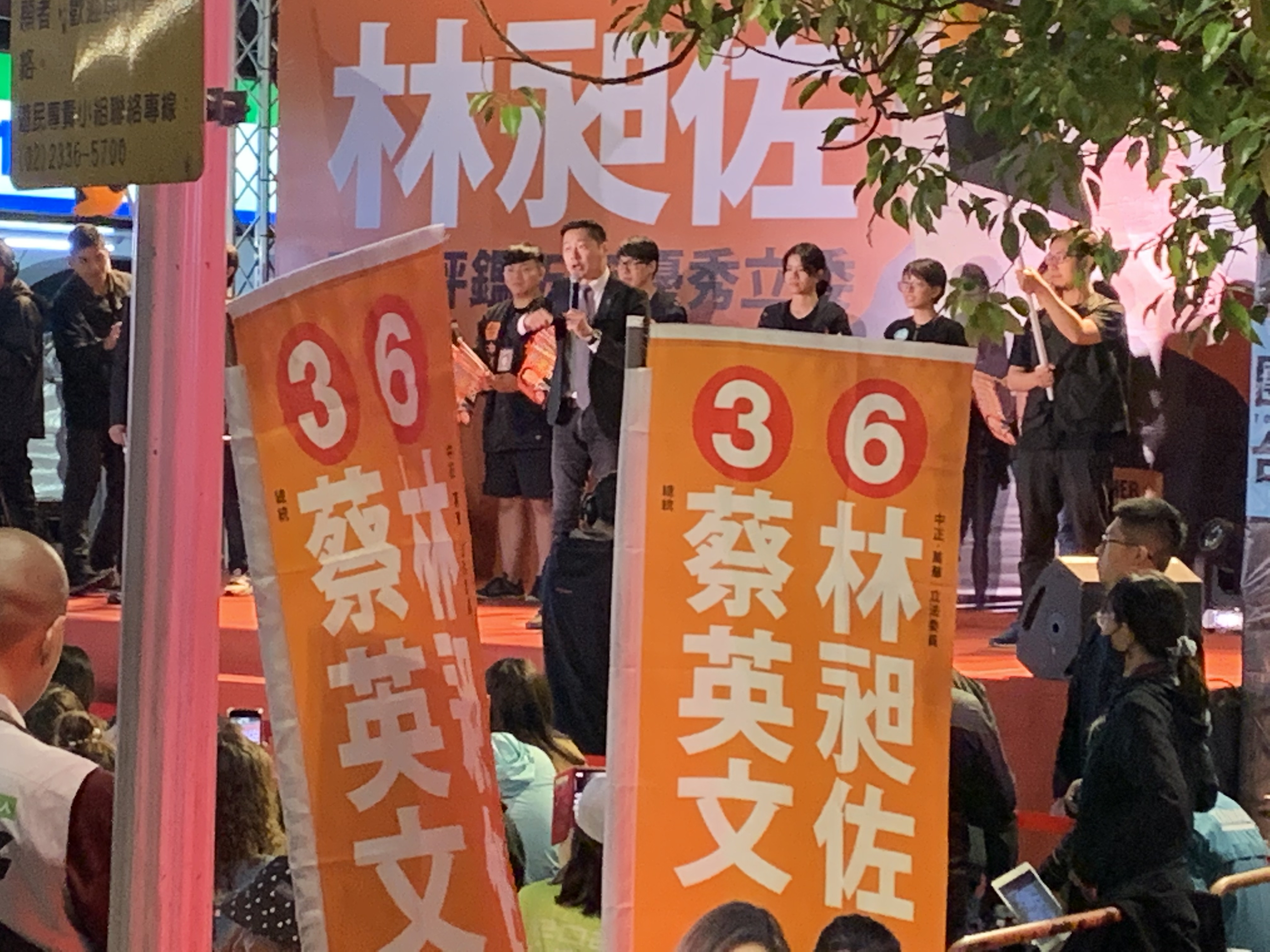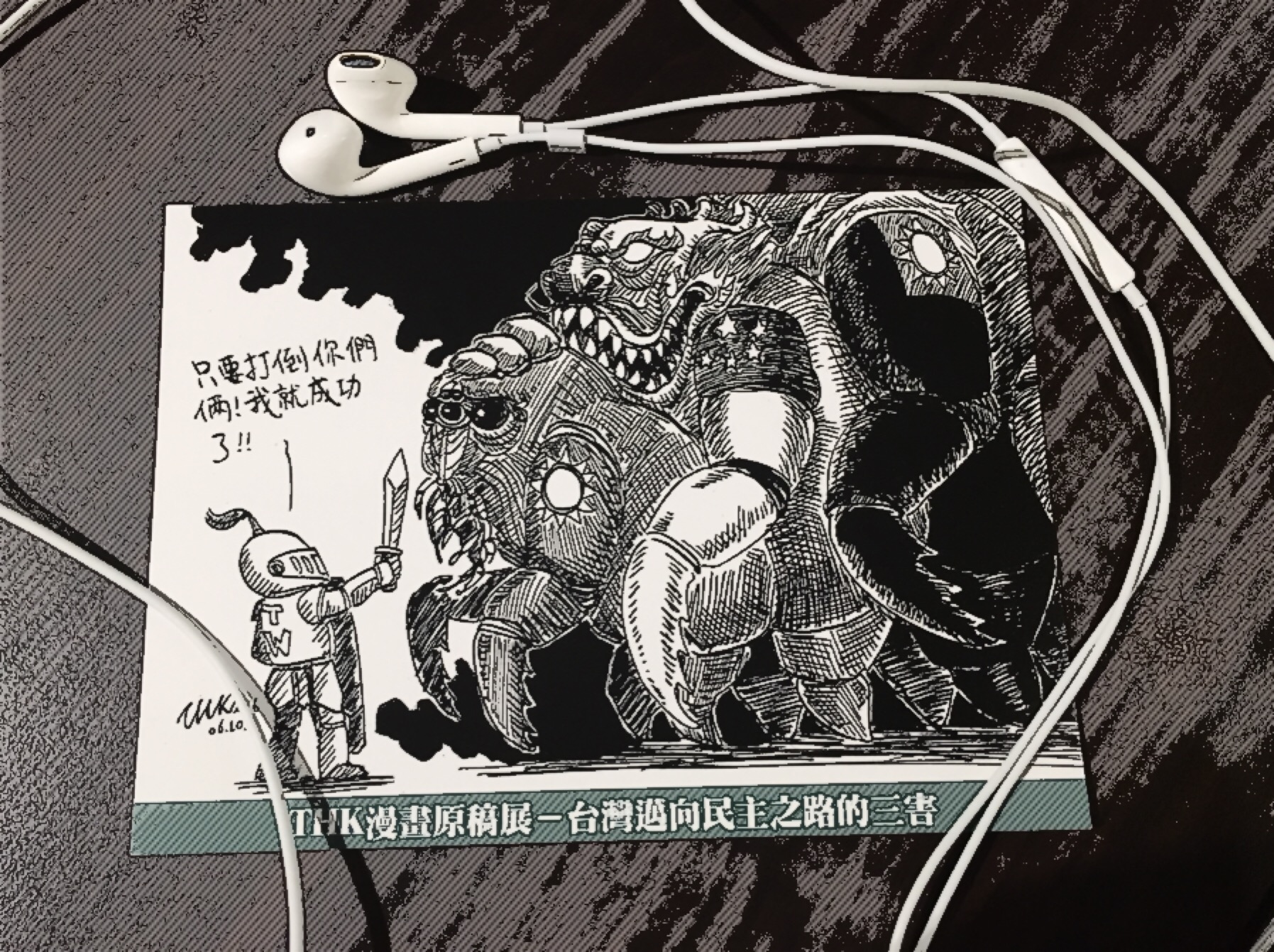
I've been avoiding election commentary to keep my anxiety levels in check. Plus, I had a piece of metal drilled into my jaw today, and I'm working six days a week. Suffice it to say, I've had to let blogging take a backseat again.
But now that I have two days to recover from the whole metal-in-jaw thing where I get to lounge around in my LL Bean hoodie and sushi pajama pants, and I wanted to make a quick point about some stupid thing Han Kuo-yu said on the campaign trail.
I don't want to care about anything Han has to say, but as the KMT is putting him at the top of the legislative party list candidates, unfortunately, we're probably going to have to hear his stupid voice for awhile yet. (It also shows that the KMT pivot back to reactionary rhetoric and policy isn't shallow, it's a full, tire-screeching turn).
The clip is 8 minutes long, but only the first minute or so grabbed my attention. Han says, "how can a miner's son become the vice president? How can they run for president?" This is a jab at Lai Ching-te, who made good as a doctor and then political figure, and is also the son of a Wanli miner.
Taken alone, this could be seen as pure classism, but it's not really what Han meant. He went on, "this is eating the Republic of China's rice, smashing the Republic of China's bowl, cutting the roots of the Republic of China."
(Regarding that last phrase, 斷根 is an interesting choice to me. If you change the object being cut off at the root, you can use it to mean something more like excising an illness).
What Han really meant here is that he's ungrateful for everything he became thanks to the ROC. The implication is that the great Republic of China government lifted people from humble beginnings like Lai so that a miner's son might hope to run for president.
That sounds a bit better than just "how can a miner's son run for president?" but I think, in some ways, it's actually worse. The first part of his statement, taken alone, is shallow classism. It would be readily and rightly attacked. In fact, I can't imagine anyone would dare to say such a thing on the campaign trail; it could only hurt their party and candidate. This doesn't mean the KMT doesn't think it -- I believe many of them do -- only that they wouldn't say it.
On the other hand, spinning a story that the miner's son is ungrateful that he is able to run for president of the country because he supports Taiwanese sovereignty, not ROC ideology, is likely to strike a chord with many supporters. Watch the video -- Han was met with cheers. It doesn't surprise me that attendees at this rally believe this nonsense, and it's what makes that nonsense so much more dangerous.
It's all claptrap, of course.
From an economic standpoint, when Lai was born, the ROC on Taiwan was concerned primarily with re-taking China. They didn't even really want to be here -- to live here, build lives here -- besides some vague claim to the land. The ROC was spending over 90% of its budget on the military. They also kept tight controls on the economy: that's where all those poorly-run national enterprises stuffed with nepo babies came from. Their economic development goals were, kindly put, unachievable.
Aid from the US helped stabilize this situation, not anything the ROC specifically did. They used ineffective measures to curb inflation and talked a big game about local development while spending nothing on it. It took a great deal of pressure from the US, along with aid, to convince the ROC to actually prioritize economic stability and development.
Even then, it took decades for Taiwan to regain the level of economic development and stability it had under Japanese colonial rule. Considering Taiwan's level of development and infrastructure before the war, it simply should not have taken this long. To the extent that the ROC government 'developed' Taiwan, they were only fixing the two generations of bad economic policy that led it to need 'developing' in the first place.
In other words, Lai Ching-te did not grow up in a Taiwan where the ROC was doing everything it could to ensure people like him had the opportunity to go from a miners' sons to leaders. Quite the opposite. If we can give the ROC credit for developing Taiwan to the point that a miner's son could get an education that would help him become a doctor and public official, then we can frankly give just as much credit to US aid and US pressure on that government.
As someone who strongly dislikes most US foreign policy, it pains me to say this, but the numbers don't lie. If you'd like to see the numbers, I recommend Samuel Ho's Economic Development of Taiwan 1860-1970, especially the chapter on post-war Taiwan.
From a political standpoint, the ROC government wasn't all that interested in people like Lai succeeding, either. Obviously, they didn't want someone like Lai running for president at all, seeing as they did not have presidential elections. That eventually changed, thanks not to the efforts of the old dictatorship, but the Tangwai who opposed them and never gave up fighting for democratization, along with Lee Teng-hui, without whom it might not have happened as it did (or, perhaps, at all). If Lai can be grateful to anyone for the opportunities he's had in public life, it's them. The democracy movement originated in Taiwan, so that would be gratitude to Taiwan, not the Republic of China.
Beyond that, Lai's formative years were spent under an ROC government that blatantly discriminated against local Taiwanese. They didn't want miners' sons to succeed; they wanted government and national enterprise sinecures for the 1949 diaspora elite. They wanted people like Lai -- children from humble local backgrounds -- to know their place and not question the dictatorship that ruled over them, even when said dictatorship couldn't even properly get the economy on track without an influx of US cash. They wanted to rip their own history and language from them, teaching them that they were not only 'Chinese' but inferior Chinese at that because they came from a backwater and were corrupted by life as Japanese imperial subjects.
From school admission to government jobs to merely speaking the right language, the ROC if anything placed barriers on people like Lai. It was Taiwan -- that is, those who pushed for reform -- that helped him overcome them.
And that's not even taking into account that people of Lai's political persuasion were arrested, disappeared, tortured and killed throughout Lai's formative and early adult years. It absolutely horrifies me that someone stumping for the party that conducted the White Terror could possibly say that Lai is not "grateful enough" to the government they forced down Taiwan's throat.
And yet, people will believe it. Some people genuinely think the ROC was a net good for Taiwan, and gave people like Lai opportunities they should be "grateful" for. They conveniently ignore the ROC's poor governance in its early years of colonizing Taiwan. They forget the White Terror repression, fear and massacres. They forget that Taiwan has elections today despite, not because of, the way the ROC has governed Taiwan for most of its occupation of Taiwanese territory. And they forget that the KMT has deep-rooted prejudices against local Taiwanese which were far stronger, and resulted in far fewer opportunities, during Lai's formative years.
But this sure is a great way to whitewash history to suit a bullshit narrative that the ROC Lai grew up under uplifted, rather than oppressed, Taiwan.
That's what the KMT really wants: to once again force a narrative that not only is the ROC a right and just government for Taiwan, but that it always has been. They want you to believe the ROC has done mostly good, and that Taiwanese people should be grateful for it rather than angry at the brutality and oppression they actually experienced.
Like any stable person would with an abusive parent or ex-partner who thinks you should be "grateful" for all they did for you and ignore all the suffering they caused, I think it's time we collectively go no-contact with the KMT so we no longer have to tolerate their narcissistic, gaslighting horseshit.


